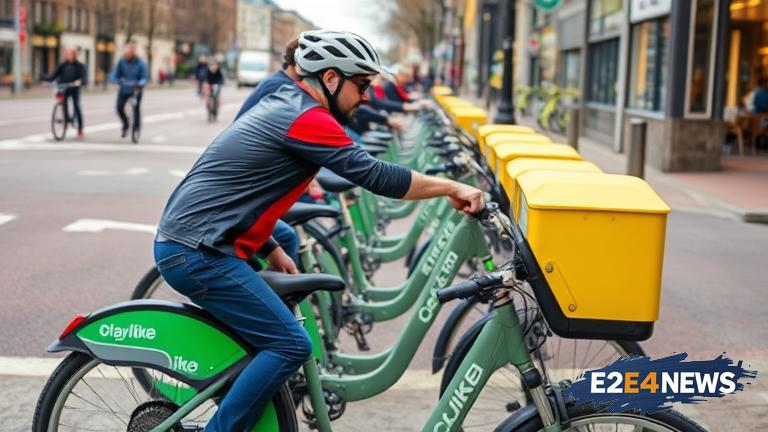A recent issue with the electronic lock system used by OV-bike, a popular bike-sharing service in the Netherlands, has led to a significant number of cyclists being incorrectly fined €350. The glitch, which affects the locking mechanism, has caused the system to incorrectly register bikes as not being locked, resulting in the wrongful issuance of fines. According to reports, thousands of cyclists have been affected by the issue, with many taking to social media to express their frustration and disappointment. The OV-bike system, which is widely used in the Netherlands, relies on an electronic locking mechanism to secure bikes when they are not in use. However, the glitch has caused the system to malfunction, resulting in the incorrect registration of bikes as not being locked. As a result, many cyclists have received fines of €350, which is the standard penalty for not locking a bike properly. The issue has sparked widespread outrage, with many cyclists feeling that they have been unfairly targeted. The OV-bike company has apologized for the issue and has promised to refund the incorrect fines. However, the company has also stated that it may take some time to resolve the issue, as it needs to manually review each case. In the meantime, cyclists are being advised to check their accounts regularly to ensure that they have not been incorrectly fined. The glitch has also raised concerns about the reliability of the OV-bike system, with some cyclists questioning the effectiveness of the electronic locking mechanism. The OV-bike company has stated that it is working to resolve the issue as quickly as possible, but it is unclear when the problem will be fully resolved. The Dutch government has also been criticized for not doing enough to regulate the bike-sharing industry, with some arguing that the industry is not subject to sufficient oversight. The issue has also highlighted the need for greater transparency and accountability in the bike-sharing industry, with some calling for more stringent regulations to be put in place. The OV-bike company has promised to cooperate fully with any investigation into the issue and has stated that it will do everything in its power to prevent similar issues from arising in the future. The glitch has also had a significant impact on the cycling community, with many cyclists feeling that their trust in the OV-bike system has been broken. The issue has also raised concerns about the potential for similar glitches to occur in other bike-sharing systems, highlighting the need for greater vigilance and oversight in the industry. The Dutch cycling association has called for a full investigation into the issue and has demanded that the OV-bike company takes steps to prevent similar issues from arising in the future. The association has also called for greater transparency and accountability in the bike-sharing industry, arguing that cyclists have a right to know how their data is being used and how the system is being managed. The issue has also sparked a wider debate about the role of technology in the bike-sharing industry, with some arguing that the reliance on electronic locking mechanisms is a recipe for disaster. The OV-bike company has stated that it is committed to finding a solution to the issue and has promised to work closely with cyclists and other stakeholders to ensure that the system is reliable and effective. The company has also stated that it will do everything in its power to regain the trust of cyclists and to prevent similar issues from arising in the future. The issue is a significant setback for the OV-bike company, which has been working to expand its services in recent years. The company has stated that it is committed to providing a high-quality service to its customers and has promised to do everything in its power to prevent similar issues from arising in the future.





